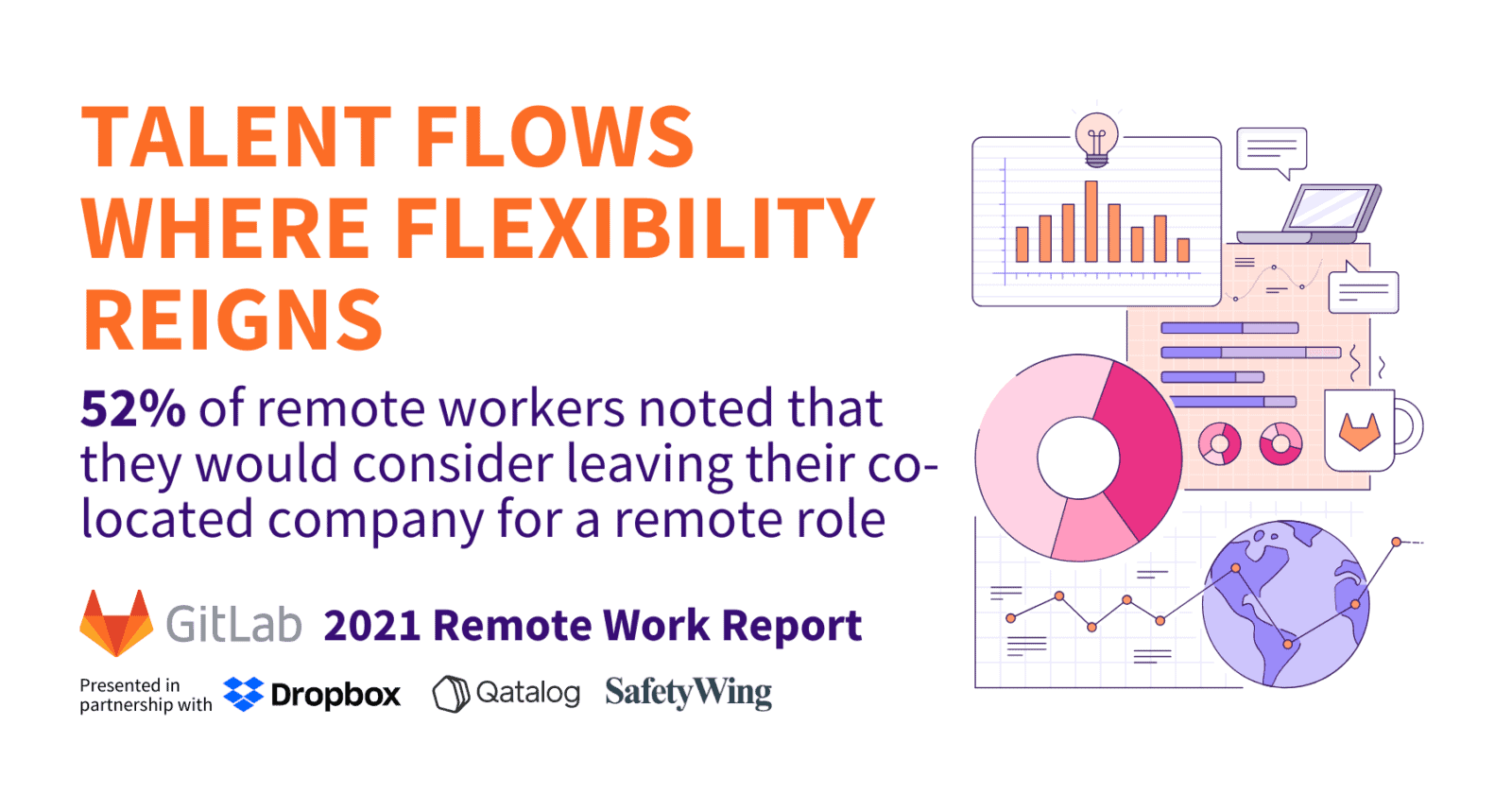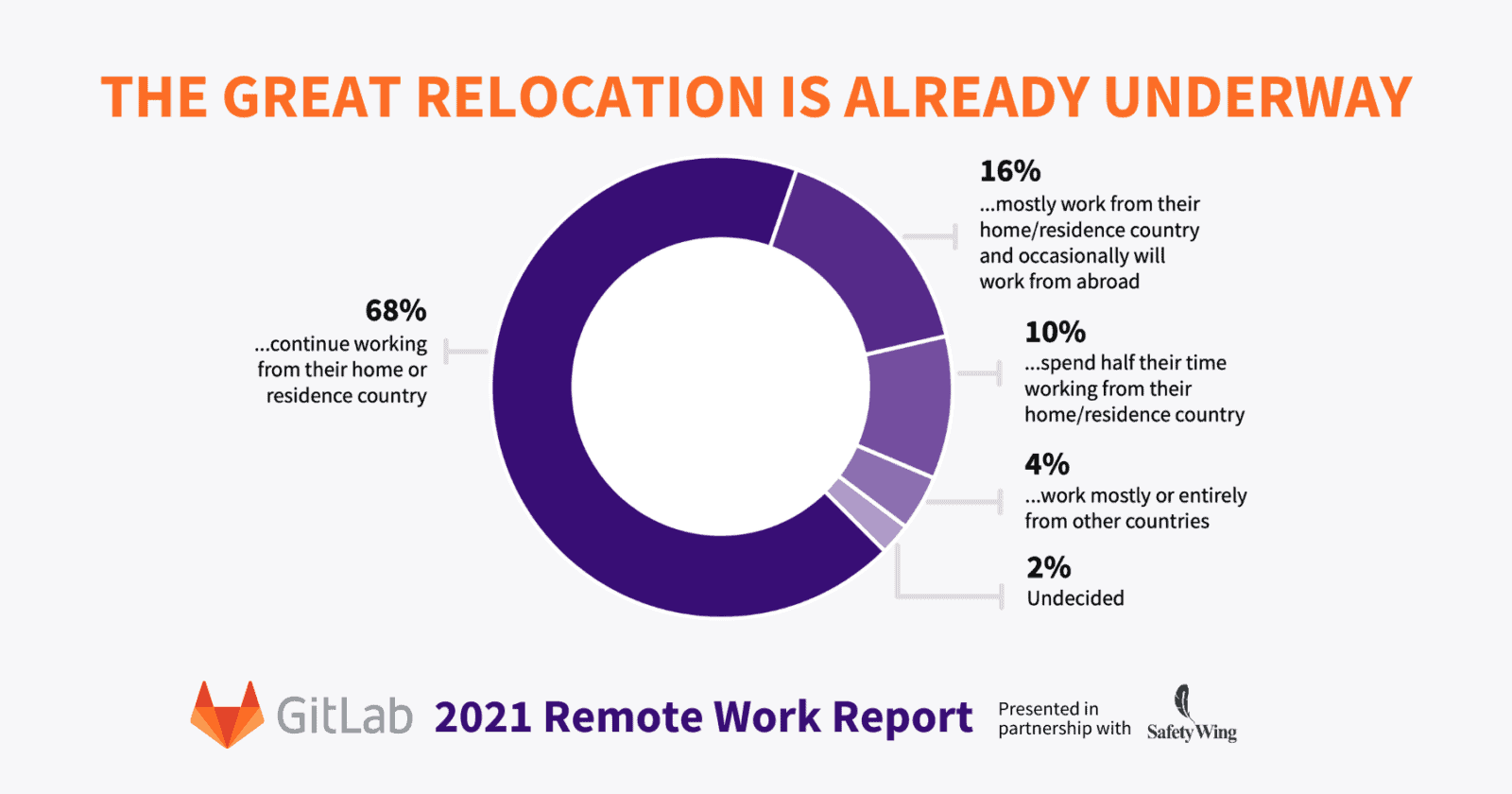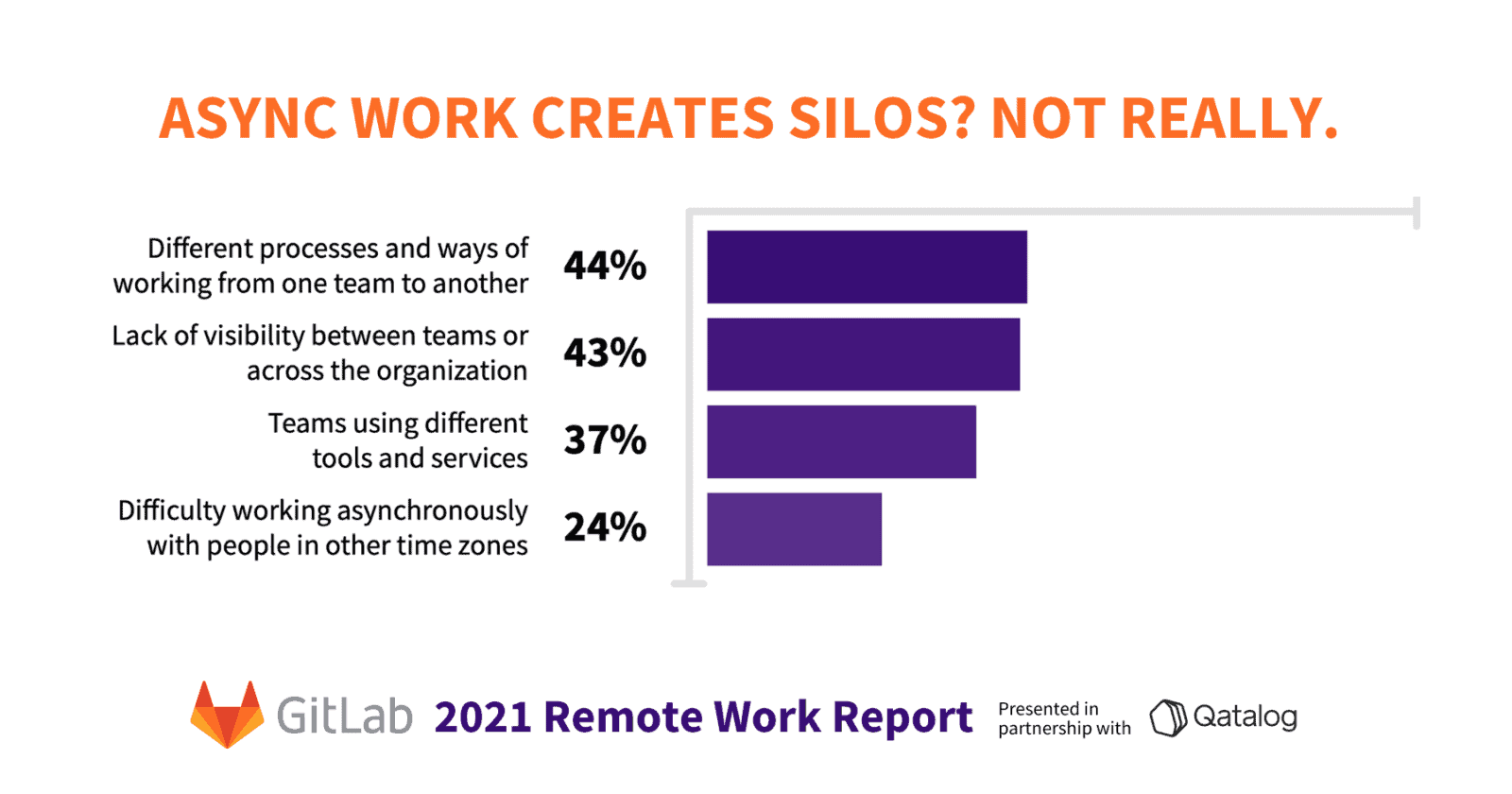SINGAPORE – April 28, 2021 – Today GitLab Inc., the single application for the DevOps lifecycle, published findings from its annual Remote Work Report, sponsored by Dropbox, Qatalog, and SafetyWing.
Building upon last year’s pre-pandemic inaugural Remote Work Report: The Future of Work is Remote, this year’s report is a comprehensive look at remote work, with over 3,900 people surveyed across six continents.
Through the turbulence of the pandemic, many organizations learned they could in fact continue work outside of an office.
We’ve moved beyond the “will it work?” debate.
Now, organizations are on the clock to recast workflows and culture to support evolved expectations on workplace flexibility.
The 2021 Remote Work Report supports this observation and addresses how remote can scale, what the challenges are, and what’s next.
All-remote work is the new normal delivering innumerable benefits to both companies and team members. Through documentation and transparency, GitLab has shared proven best practices for increasing diversity and inclusion, fostering a more open community, and giving team members flexibility.
Sid Sijbrandij, co-founder and CEO of GitLab Inc
“We were already hurtling toward a remote-first world before the COVID-19 pandemic and our 2021 Remote Work Report shows this hasn’t changed, it’s simply been accelerated,” said Darren Murph, Head of Remote at GitLab Inc. “People want the flexibility and autonomy that remote enables, and progressive companies realize that they can’t — and shouldn’t — revert back to how they were functioning before. The past year did not change the proven fundamentals of successful remote work. Instead, it highlighted significant opportunities for bolstering diversity, inclusion, efficiency, and transparency by evolving workflows and culture to meet modern standards.”
Remote Goes Mainstream

While challenges were faced with pandemic-induced work-from-home last year, companies still experienced remote work advantages including increased productivity (42%) and efficiency (38%), and a reduction in bureaucracy and office politics (24%).
Looking to a post-pandemic future, 68% said they plan to continue working remotely, however, many companies are looking to implement a hybrid model.
With hybrid work, leaders are forced to balance two fundamentally distinct ways of working, adding an administrative burden to manage a default-onsite and a default-offsite experience.
The contrast of perception and reality

There’s a disconnect between the ostensibly high levels of satisfaction with remote work and the actual pain people are feeling day-to-day.
While 4 in 5 would recommend remote working to a friend and 81% of people are satisfied with the level of productivity, teamwork across organizations is struggling.
Just over a third (37%) report that their organization does a good job of aligning work across projects.
Diversity, Inclusion, and Belonging Take The Spotlight

Thirty-four percent of respondents noted that more transparency from leadership leads to a deeper feeling of connectedness at work, while 38% noted that more visibility into the work within the organization improved their sense of connection.
Transparency reduces the threshold to contribution and makes collaboration easier, and embracing inclusion overall leads to a stronger feeling of a sense of belonging.
GitLab has found that operating at a high level of transparency leads to more engaged and invested team members.




